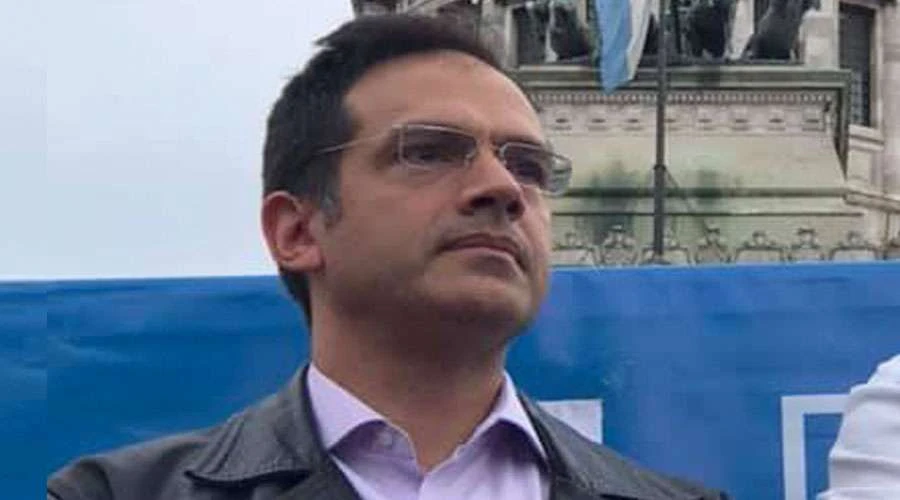
The Ministry of Health of Entre Ríos (Argentina) authorized the gynecologist Leandro Rodríguez Lastra to return to practice his profession privately, canceling the precautionary measure that had sanctioned him for not having an abortion in 2017.
In November 2020, the Ministry of Health Entre Ríos deactivated the registration of the doctor who, at that time, opened a private practice in the municipality of Gualeguaychú.
This disqualification followed the judgment of October 4, 2019 of the Rio Negro Court, which sentenced the doctor to one year and two months in prison with suspension and to two years and four months of disqualification from public office.
However, the doctor’s defense appealed the court ruling. In addition, in December 2020 he filed an appeal with the ministry, which received a favorable response.
The decision of the Ministry of 11 February indicates that “the sentence of imprisonment and disqualification (of the court) is not final and agreed”, so that the precautionary measure “against Rodríguez Lastra remains” without effect ex officio.
Damián Torres, one of Rodríguez Lastra’s defense attorneys, told ACI Prensa that even if the court’s decision is upheld, the doctor could only be disqualified from practicing medicine in a public position, not in the private sector, where he could continue. with your profession.
The case of abortion
Gynecologist Leandro Rodríguez Lastra was convicted of avoiding an abortion in 2017, which saved the life of the mother and her 23-week-old son.
In April 2017, the 19-year-old mother arrived at the Pedro Moguillansky Hospital in Cipolleti with severe pain after ingesting misoprostol administered by La Revuelta to try a clandestine abortion.
Rodríguez Lastra, who was on duty as a doctor, intervened when the patient reached the risk of death, more than five months pregnant. The baby weighed about 500 grams. The gynecologist did not perform the abortion because, in addition to ending the child’s life, he endangered the mother.
The gynecologist stabilized the mother and, when the baby was seven and a half months pregnant, the medical board ordered that she deliver by cesarean section. Eventually, the newborn was placed for adoption.
Marta Milesi, defender of the unpunished abortion protocol and at that time deputy for the province of Río Negro, was the one who reported the doctor.
During the trial, in September 2019, prosecutor Santiago Márquez Gauna accused the doctor of putting his will “above the will of the patient” and of breaking the law. “He did not ask for his consent to do everything he did,” and he has already prevented an abortion, he said.
In addition, he accused him of leaving a scar on the woman by cesarean section that “will remind her of the ordeal she had to go through all her life.”
The Río Negro court found Rodríguez Lastra guilty of breaching his duties as a civil servant. Judge Álvaro Meynet argued that the doctor had performed a “delay maneuver” and that, since he was not on the register of conscientious objectors, he was required by law to have an abortion.
The judgment was appealed.
In a video message on his twitter account, Rodríguez Lastra thanked all those who “helped him in one way or another” on February 24. “This is the way, respecting and ensuring the rights of all,” he said.
If thinking otherwise prevents me from working, whose rights are being violated …?
I share great news about my situation in Entre Ríos.@leanjacobi @datorresok @MxlaVidaoficial @LawyersLife @elentrerios pic.twitter.com/UCYkF9gaTE
– Leandro Rodriguez Lastra (@LeandroRLok) February 24, 2021